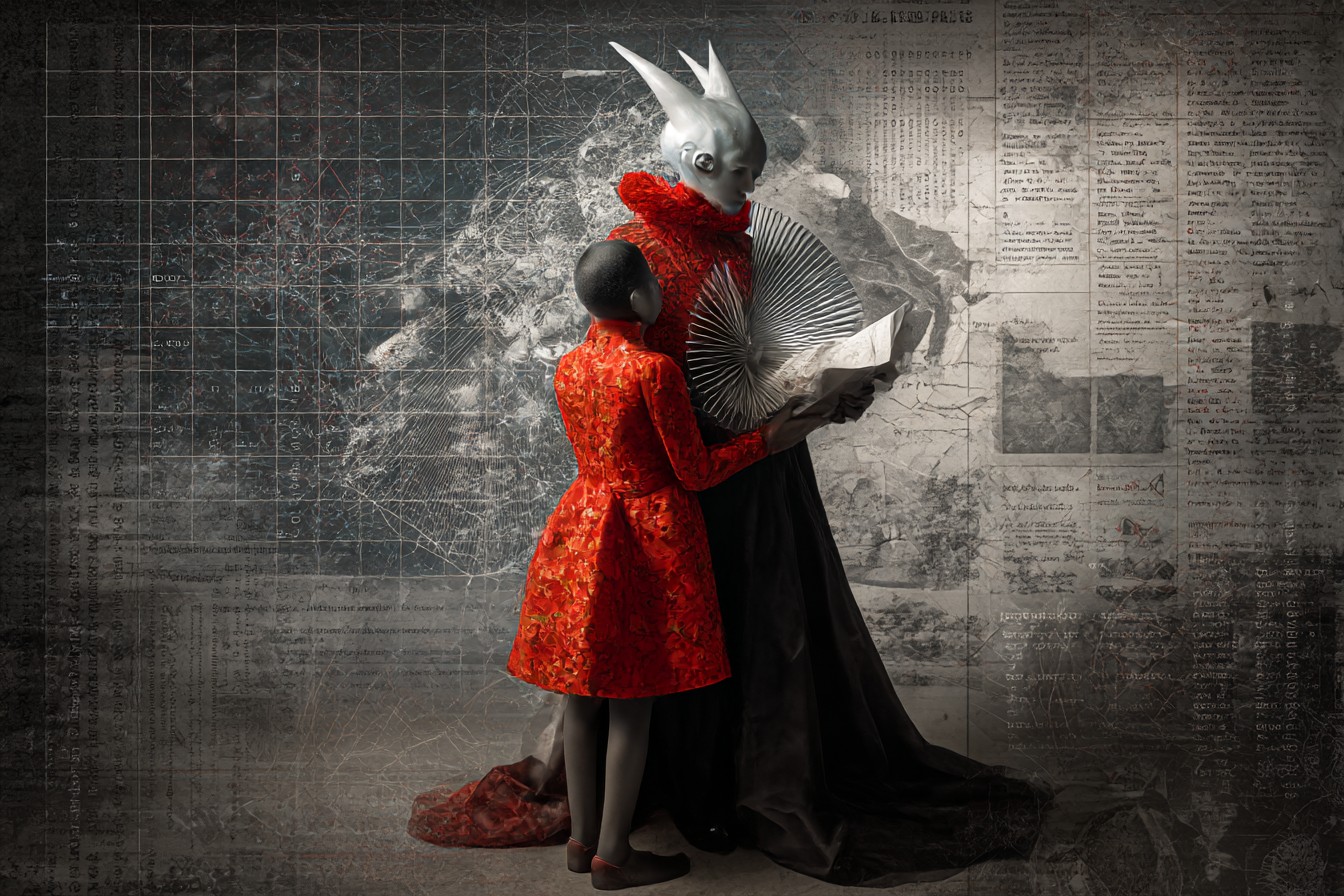The Christmas I turned nine, I spent three weeks making elaborate handmade gifts for every family member. For my dad, a paper-mache pencil holder painted with wobbly racing cars. For my mum, a lumpy clay jewellery dish glazed in her favorite blue. For my brother, a painstakingly illustrated “book” about space bound with yarn. I wrapped each creation in newspaper decorated with potato-stamp stars, adding hand-drawn gift tags with special messages.
On Christmas morning, I vibrated with anticipation as each person unwrapped their gift. My dad said, “Oh, thanks, Emma” before setting it aside to continue assembling my brother’s new remote-control car. My mum gave a distracted “That’s lovely, darling” before rushing to check something in the oven. My brother barely glanced at his book before returning to his main presents. By midday, my handmade treasures had been mostly forgotten amid the commercial gifts—my dad’s pencil holder already relegated to a shelf, my mother’s dish buried under wrapping paper.
I didn’t make a scene. I didn’t cry or complain. But something shifted inside me—a small, hard knot formed somewhere beneath my ribs. If you were to pinpoint the moment my gift obsession truly began, it wasn’t the pinecone incident I’ve mentioned before. It was this quiet Christmas disappointment, the unspoken but profound understanding that my heartfelt offerings hadn’t been enough. That I needed to try harder, do better, give more impressively if I wanted my gifts to really matter.
This memory surfaced during a therapy session last year, when my therapist Sarah gently suggested we explore why I become so intensely anxious about gift-giving. “You approach birthdays and holidays with the intensity of someone defusing a bomb,” she observed. “What are you afraid will happen if you get it wrong?” The question caught me off guard. I’d built an entire persona—even a career—around being exceptionally good at selecting meaningful presents. I’d never really examined the emotional undercurrents driving that specialization.
Our conversation opened a door to what I’ve come to call the “shadow side” of my gift-giving—the complex, sometimes uncomfortable emotional patterns that have shaped my approach to presents. While I genuinely love bringing joy through thoughtful gifts, I’ve had to acknowledge that less wholesome motivations sometimes lurk beneath my carefully chosen wrapping paper. Understanding these patterns hasn’t diminished my love of giving, but it has helped me recognize when I’m being driven by old wounds rather than genuine generosity.
The most persistent shadow I’ve identified is what Sarah calls my “gift perfectionism”—the exhausting belief that each present must be flawlessly chosen, timed, and presented. This isn’t about normal thoughtfulness; it’s about an almost superstitious fear that a gift misstep signals a fundamental failure of care or understanding. I once spent seventeen hours over three days hunting for a very specific vintage teacup for my aunt because I’d convinced myself nothing else would properly convey my appreciation for her support during a difficult time. The teacup itself was lovely, but the frantic energy behind the search had nothing to do with her and everything to do with my disproportionate fear of gift inadequacy.
This perfectionism manifests in obsessive overthinking. I’ve lain awake at 3 AM wondering if the book I’ve chosen for someone subtly communicates an unintended message. I’ve drafted actual pros-and-cons lists comparing potential gifts as if I were making a life-altering decision rather than selecting a birthday present. Charlie once found me surrounded by seven different potential gifts for my friend’s new baby, looking genuinely distressed about making the “wrong” choice. “You know she’ll appreciate anything from you, right?” he asked, reasonably. The concept seemed almost incomprehensible in that moment—as if the entire relationship hinged on this specific gift decision.
Behind this perfectionism lies a deeper pattern—using gifts as emotional insurance. On some level, I’ve treated exceptional gift-giving as a way to guarantee that I matter to people, that they won’t forget or abandon me. The unspoken bargain goes something like: “If I give you this extraordinarily thoughtful gift, you are obligated to appreciate me.” It’s not a conscious transaction, but the emotional mathematics are there, rooted in that childhood fear of having my offerings—and by extension, myself—dismissed or found wanting.
This dynamic became painfully clear when a close friendship ended despite years of meticulously selected presents. I remember feeling almost betrayed, thinking, “But I gave her that out-of-print book she mentioned once three years ago! I tracked down those earrings from that tiny shop in Edinburgh she loved!” As if these gifts should have created an unbreakable obligation. The relationship ended for complex, valid reasons that had nothing to do with presents, but my gift-giving had created an unconscious expectation of emotional debt that wasn’t fair to either of us.
Another shadow I’ve had to confront is using gifts as emotional deflection—offering presents in lieu of direct vulnerability. After a significant argument with Charlie early in our relationship, I responded not by having the difficult conversation we needed but by orchestrating an elaborate surprise involving his favorite hard-to-find records. The gesture was genuinely appreciated, but it also neatly sidestepped the actual emotional work needed. “You know you can just tell me you’re sorry, right?” he said gently. “You don’t have to create a whole production.”
This pattern extends beyond conflict resolution. I’ve used gifts to express feelings I’m afraid to state directly, to create connections I’m insecure about maintaining through ordinary interaction, to demonstrate care when I’m not confident my regular presence is enough. My friend Sonia pointed this out after I sent an extravagant care package when she was going through a rough patch. “The stuff is lovely,” she texted, “but you know what would help more? If you just called more often.” The comment stung precisely because it was accurate—I’d poured energy into curating physical items when what she really needed was my time and attention.
Perhaps the most uncomfortable shadow pattern I’ve recognized is what I now think of as “gift martyrdom”—deriving a certain satisfaction from exhausting myself to create perfect giving experiences, then feeling resentful when the recipients don’t appreciate my efforts to the degree I feel they deserve. I once stayed up until 2 AM hand-painting personalized Christmas crackers for a family gathering, then felt disproportionately hurt when no one commented on the intricate designs. The joy had shifted from giving to being acknowledged as an exceptional giver—a subtle but significant difference.
This martyrdom sometimes extends to financial strain. I’ve spent amounts I couldn’t really afford on gifts to maintain my identity as someone who gives memorable presents, creating unnecessary financial stress while telling myself it was worth it for the recipient’s happiness. The time I maxed out my credit card on my brother’s 30th birthday gift, then had to eat beans on toast for two weeks while pretending everything was fine, was a wake-up call about this particular pattern.
Understanding these shadows hasn’t always been comfortable. It’s humbling to recognize that behaviors I’ve considered generous can sometimes carry unhealthy emotional bargaining. But acknowledging these patterns has actually enhanced rather than diminished my gift-giving by allowing me to check my motivations and adjust course when necessary.
Now when I feel that familiar anxiety rising around a gift decision, I pause and ask myself: “Am I trying to create joy for the recipient, or am I trying to prove something or protect myself emotionally?” When I notice myself going to extreme lengths, I consider whether I’m responding to the recipient’s actual preferences or to my own need to be seen as exceptionally thoughtful. These moments of reflection don’t always change my actions, but they do change the emotional energy behind them.
I’ve also learned to recognize when gift-giving becomes a substitute for more vulnerable forms of connection. When my instinct is to send a present to someone going through a difficult time, I now ask myself whether a phone call, an honest conversation, or practical help might actually be more meaningful. Sometimes the gift is still appropriate, but I’m more conscious of not using it to avoid more direct forms of emotional engagement.
The financial aspect has required particular attention. I’ve developed clearer budget guidelines to prevent the financial stress that can accompany excessive gift expenses. More importantly, I’ve worked to separate my self-worth from the monetary value of what I can give. Some of my most appreciated recent gifts have been modest in cost but rich in thoughtfulness—like the playlist I created for my friend’s difficult commute, with each song chosen to correspond to specific landmarks along her route, timed to provide encouragement at the most tedious stretches.
Perhaps most significantly, I’ve had to confront the uncomfortable truth that perfect gifts cannot create perfect relationships. No matter how thoughtfully chosen, a present cannot guarantee appreciation, prevent abandonment, resolve conflicts, or create connection all by itself. Gifts are meaningful expressions within relationships, not magical talismans that control their outcomes.
This reality became particularly clear after giving what I considered a nearly perfect gift to a friend—an experience I’d spent months planning, aligned precisely with her interests and needs. She was genuinely appreciative, but our friendship still drifted apart in the following year due to life changes and gradually diverging paths. The gift was a lovely moment in our relationship, but it couldn’t override the natural evolution of our connection. Accepting this limitation has been both painful and liberating.
I’ve also had to acknowledge that my gift-giving standards are sometimes more about my identity than others’ preferences. Not everyone wants or appreciates the kind of meticulously personalized presents I tend to give. My brother, for instance, has explicitly told me he prefers straightforward gifts from his wishlist rather than surprise interpretations of his interests. Respecting this preference—even though it feels less creative or special to me—is actually more thoughtful than imposing my gifting style on someone who experiences presents differently.
Letting go of gift perfectionism doesn’t mean abandoning thoughtfulness. I still maintain my gift journals, still pay attention to preferences and hints, still take genuine pleasure in finding just the right thing for someone special. But I’m learning to hold these efforts more lightly, to recognize when perfectionism tips into unhealthy territory, and to remember that the true purpose of giving is connection, not emotional security or self-definition.
Some old patterns remain surprisingly stubborn. Last Christmas, I found myself awake at midnight, second-guessing the main gift I’d chosen for Charlie and contemplating a last-minute replacement. The familiar anxiety tightened my chest—what if it wasn’t good enough? What if he was disappointed? What if it proved I didn’t really understand him after all these years? I recognized the spiral for what it was: not genuine concern for his happiness but my own ancient fear of offering something from my heart and having it dismissed.
I took a deep breath, closed the laptop, and went to bed. The next morning, Charlie was genuinely delighted with his original gift. Not because it was perfect—it wasn’t—but because it came from a place of real attention to who he is and what matters to him. The world didn’t end. Our relationship didn’t collapse. My worth wasn’t diminished by giving an imperfect present.
That small moment of letting go felt significant—a tiny step toward a healthier relationship with giving. I still believe in the power of thoughtful gifts to create moments of joy and connection. I still take immense pleasure in finding just the right thing for someone I care about. But I’m working to disentangle these genuine pleasures from the shadows of insecurity, emotional bargaining, and perfectionism that have sometimes driven my giving.
The little girl who made those handmade Christmas gifts all those years ago wasn’t wrong to want her offerings acknowledged and valued. That desire for recognition is profoundly human. But the adult I’ve become is learning that true giving comes with open hands—offered without guarantee, without demand, without using presents to manage my own emotional needs. The joy comes not from achieving some perfect standard of giving but from the genuine desire to bring happiness to someone else, however imperfectly expressed.
And sometimes, when I’m being completely honest with myself, the most thoughtful gift I can give is the one that doesn’t require quite so much of me—leaving enough energy to be fully present for the relationships that matter most. Because presence, it turns out, is the most meaningful present of all.





Leave a Reply